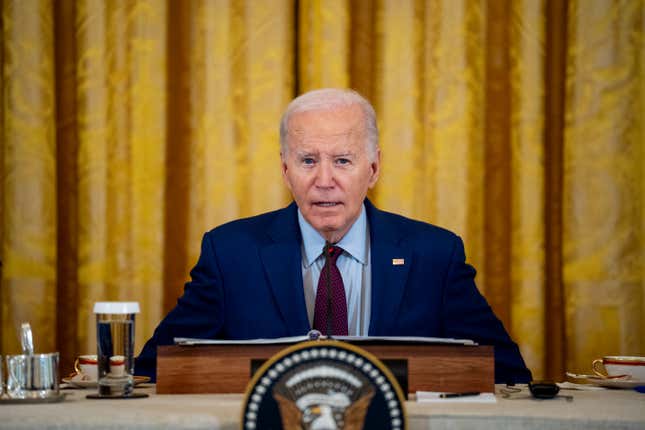
In This Story
The United States is expected to impose new tariffs on China’s exports of products in key industries this week as the Biden administration seeks to weaken the country’s flood of goods into the West. And the restrictions are coming for one product in particular: cars.
The new tariffs will most affect China’s automakers, which have been rapidly increasing their investments in electric vehicles and associated industries, like batteries. The total tariff on Chinese EVs will be 102.5%, Bloomberg reports, up from 27.5%. Other tariffs, such as those on EV batteries and semiconductors, could double or triple.
Clean energy gets a tariff exception
Other items are expected to be excluded in one priority industry: renewable energy. The machinery used to make parts for solar panels, for one example, will be one exception.
The Biden administration has made and cutting carbon emissions a central part of its agenda. The Department of Energy has frozen permits for liquified natural gas, issued strict rules on tailpipe emissions, and Biden’s signature legislation — the Inflation Education Act — is slated to create more than 271,000 new clean energy jobs.
Meanwhile, other proposed tariffs crack down on so-called dirty industries coming in from China, particularly in manufacturing. U.S. president Joe Biden last month called on the U.S. Trade Representative, the federal agency tasked with trade policy, to consider tripling the 7.5% tariffs on certain Chinese steel and aluminum products — two materials known for their high-pollutant processes.
Dropping soon
The announcement, which could land as soon as Tuesday, is expected to be framed as a necessary measure to protect American workers, Bloomberg reports. Treasury Secretary Janet Yellen has said that Biden would not allow a second wave of the “China shock” of the early 2000s, referring to when a flood of Chinese imports removed 2.4 million U.S. manufacturing jobs.
The increased tariffs are also thought to be more of a symbolic than practical gesture. Chinese EV makers largely avoid exporting to the U.S. due to existing tariffs imposed by former President Donald Trump’s administration. One of the few exceptions is Polestar, a Sweden-based luxury EV maker that is owned by China’s Geely. Zeekr, a premium EV brand owned by Geely, went public in New York on Friday.
But Biden — who has won the endorsement of the United Auto Workers union — is seeking reelection in November, and has made protecting American manufacturing a cornerstone of his campaign. The issue is particularly pronounced in the auto industry. Senator Sherrod Brown, an Ohio Democrat seeking reelection in a state won twice by Trump, last month called for a “total ban” on China’s EVs.
“The introduction of cheap Chinese autos —which are so inexpensive because they are backed with the power and funding of the Chinese government — to the American market could end up being an extinction-level event for the U.S. auto sector,” the Alliance for American Manufacturing said in a Feb. 20 report cited by Brown.
U.S. officials are also concerned about reports that some Chinese auto giants are planning to build factories in Mexico. That includes BYD, MG Motor, and Chery. At least a dozen Chinese electric-car part suppliers have recently announced new factories or added to their existing investments in Mexico, The Wall Street Journal reported earlier this year.